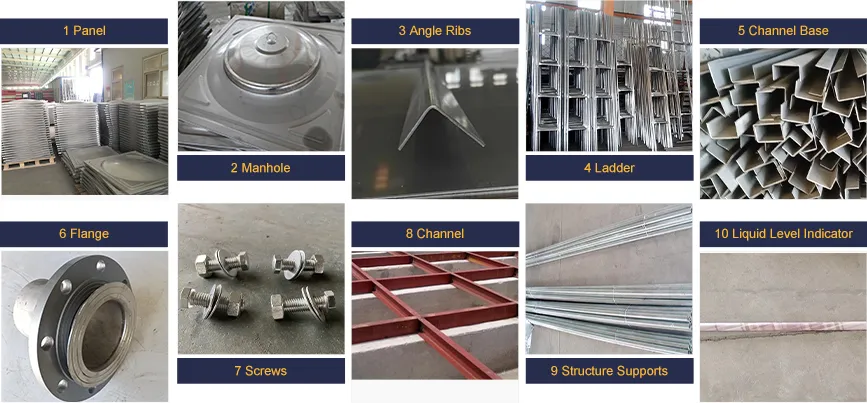loading...
- No. 9, Xingyuan South Street, Dongwaihuan Road, Zaoqiang County, Hengshui, Hebei, China
- admin@zjcomposites.com
- +86 15097380338
- Welcome to visit our website!
Efficient Filtration Solutions with FRP Filter Vessels for Various Applications
Understanding FRP Filter Vessels An Essential Component in Water Treatment
In the realm of water treatment and filtration, the choice of materials and equipment used plays a crucial role in determining the efficiency and effectiveness of the process. Among the various options available, FRP (Fiberglass Reinforced Plastic) filter vessels have gained prominence due to their unique properties and advantages. This article delves into the fundamentals of FRP filter vessels, their benefits, applications, and why they are becoming a preferred choice in modern filtration systems.
What are FRP Filter Vessels?
FRP filter vessels are cylindrical tanks constructed from fiberglass reinforced plastic. This composite material combines the high strength of fiberglass with the lightweight and corrosion-resistant properties of plastic. The manufacturing process involves layering fiberglass along with a resin, resulting in robust and durable tanks capable of withstanding harsh environmental conditions.
Key Benefits of FRP Filter Vessels
1. Corrosion Resistance One of the most significant advantages of FRP filter vessels is their exceptional resistance to corrosion. Traditional metal tanks can rust and degrade over time when exposed to various chemicals or harsh water conditions. On the other hand, FRP does not suffer from these issues, making it ideal for highly corrosive environments.
2. Lightweight Compared to steel or concrete alternatives, FRP is considerably lighter, making it easier to transport, install, and maintain. This lightweight nature reduces structural load on support systems and enables easier maneuverability during installation.
3. Versatile Design FRP filter vessels can be molded into various shapes and sizes, allowing for customization according to specific project requirements. Whether for industrial applications or municipal water treatment, FRP vessels can be designed to meet diverse filtration needs.
frp filter vessel

4. Cost-Effectiveness Although the initial investment in FRP filter vessels may be higher than some other materials, their long lifespan and reduced maintenance costs often lead to better overall value. The durability and low upkeep requirements can result in significant cost savings over time.
5. Thermal Insulation FRP materials exhibit excellent thermal insulation properties, which can be beneficial in reducing energy costs in temperature-sensitive applications. This thermal stability helps maintain optimal conditions within the filtration system.
Applications of FRP Filter Vessels
Due to their numerous advantages, FRP filter vessels are utilized in various applications across different sectors
- Water Treatment Plants Municipal facilities commonly use FRP vessels for potable water treatment, facilitating effective removal of contaminants and impurities. - Industrial Processes Many industries, including chemical manufacturing and food processing, rely on FRP for filtration systems that handle corrosive substances and require frequent cleaning. - Swimming Pools The leisure industry employs FRP vessels to filter swimming pool water efficiently, ensuring a clean and safe swimming environment. - Irrigation Systems Agricultural applications benefit from FRP vessels to filter water used in irrigation, thus enhancing water quality and promoting sustainable farming practices.
Conclusion
In summary, FRP filter vessels represent a compelling choice for water treatment and filtration needs across various sectors. Their unparalleled corrosion resistance, lightweight nature, cost-effectiveness, and versatile design make them an ideal solution for modern filtration challenges. As industries continue to seek efficient and sustainable options, the adoption of FRP technology in filter vessel design is likely to increase, paving the way for cleaner water and better environmental practices. The future of filtration is indeed bright with FRP at the forefront.
-
Premium FRP Handrail for All ApplicationsNewsAug.29,2025
-
Low Maintenance FRP Mini Mesh Grating ProductsNewsAug.29,2025
-
Innovative FRP Square Tubes for Modern Industrial SolutionsNewsAug.29,2025
-
FRP Water Storage Tanks Wholesale Solutions for Bulk BuyersNewsAug.29,2025
-
FRP Molded Grating Solutions for Diverse Industrial ApplicationsNewsAug.29,2025
-
Construction Advancements Through FRP Pultruded ProfilesNewsAug.29,2025
-
Why Choose FRP Railings, Guardrails, and Handrail Systems?NewsAug.29,2025
